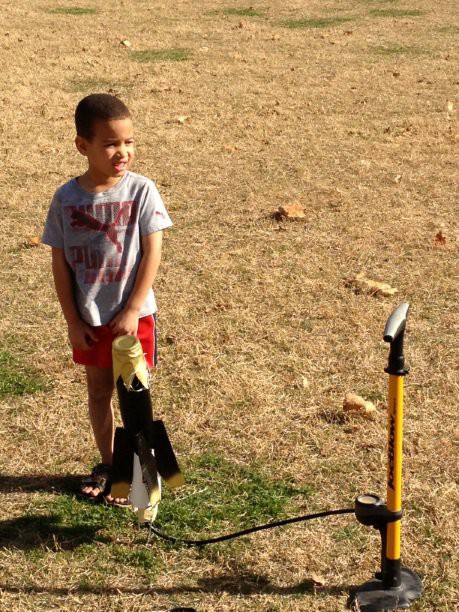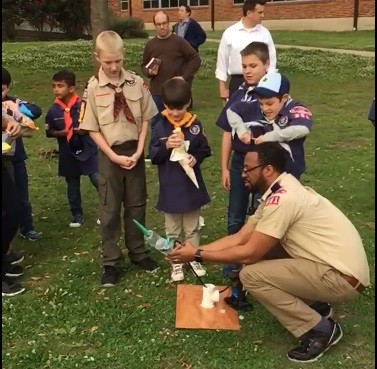I built my first water bottle rocket six and a half years ago, as a weekend project with my kids. We loved it; we didn't do anything fancy - just made fins out of cardboard, attached them to a 2-liter soda bottle, filled it with water, and used a cork and air pump to launch the device.

A few years later, I became a leader in our local cub scout pack, and started incorporating water bottle rocket design and launched in our camping trips and pack meetings.

In both cases, the kids loved it. They got a chance to make something with their hands, apply simple science principles (fins and nose cones for better flight), and immediately see the output of their design.
Last year, I decided to industrialize my designs - building a fleet of launchers so that all of my Cub Scouts would get multiple chances to launch their rockets. That got me thinking:
- Was there a way that I could make it a contest and award a prize to the rocket that went the highest?
- Was there a way to record flight data and give to to the kids for additional activities (plotting graphs, comparing their flights against the amount of water they used)
From there, I started expanding my thinking: could this be used in the classroom? How can I incorporate 3D printing, coding and electronics? How does Newton's Three Laws of Motion apply?
All that ideation lead up to this - a Water Bottle Rocket STEM Kit (still looking for something that's more catchy). My hope is that there are others out there like me - people that are passionate about making, science, electronics, and learning - and have a desire to contribute to a repository of tools, designs, lesson plans around these topics.
 Darian Johnson
Darian Johnson
Discussions
Become a Hackaday.io Member
Create an account to leave a comment. Already have an account? Log In.